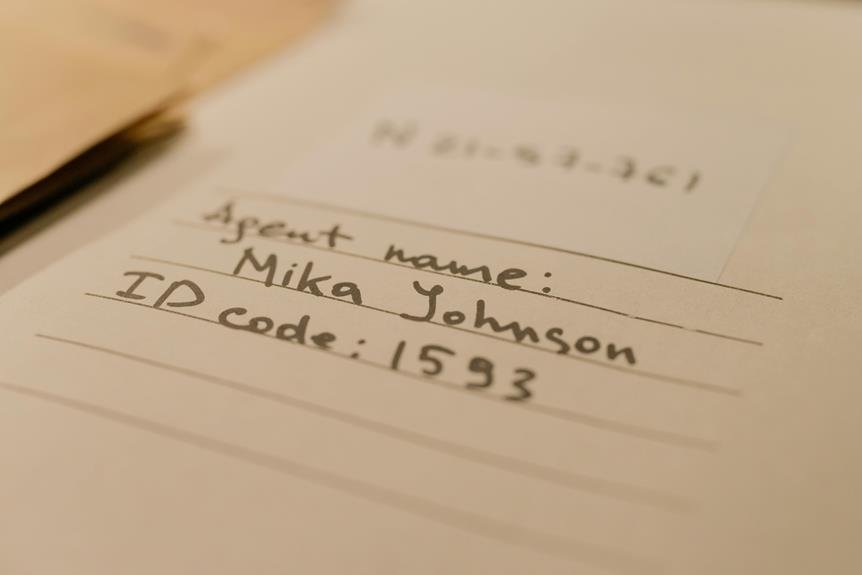
Unveiling Identity Behind This Number
The exploration of identity through numerical identifiers offers a fascinating glimpse into the intricate web of personal and societal connections. These numbers, often perceived as mere tools for categorization, possess the potential to reveal profound insights into an individual's life, history, and societal role. However, this unveiling also prompts significant concerns regarding privacy and the ethical implications of data management. As we navigate the complexities of modern identity verification, understanding the deeper significance behind these numbers becomes increasingly crucial—raising the question of how we might balance identity recognition with the need for security in an increasingly digital world.
The Power of Numbers
While numbers might seem like mere symbols devoid of meaning, they possess a profound power that extends far beyond their quantitative value.
Their numerical symbolism often conveys deep cultural significance, influencing beliefs and practices across societies. For instance, certain numbers are regarded as auspicious or inauspicious, impacting decisions in various domains, including finance, architecture, and personal identity, thereby shaping our understanding of freedom and existence.
Types of Identifying Numbers
Identification is a fundamental aspect of human interaction and societal organization, and various types of identifying numbers serve as crucial tools for establishing and verifying individuals' identities.
Key examples include social security numbers, tax identification numbers, student IDs, employee numbers, customer references, and national IDs. Each type plays a specific role in facilitating personal and institutional transactions, thereby enhancing organizational efficiency and accountability.
The Privacy Dilemma
Navigating the complex landscape of identifying numbers reveals a significant tension between the necessity of identity verification and the imperative of safeguarding personal privacy.
The rise of digital footprints raises anonymity challenges and surveillance implications, compelling individuals to confront ethical considerations regarding data protection.
Striking a balance between essential personal boundaries and the demands of modern identity verification remains a pivotal dilemma in contemporary society.
Unraveling Connections
Amidst the intricate web of identity verification, understanding the connections between various identifying numbers is crucial in comprehending their broader implications.
These numbers often intersect within social networks, revealing the digital footprints individuals leave behind. Analyzing these connections illuminates patterns of behavior, facilitating a deeper understanding of identity while emphasizing the importance of maintaining autonomy in an increasingly interconnected digital landscape.
The Future of Identity
As the landscape of identity verification evolves, it becomes increasingly important to anticipate how emerging technologies and societal shifts will shape the future of identity.
Key factors include:
- Rise of digital identities
- Enhanced cybersecurity measures
- Decentralized verification systems
- Regulatory frameworks for privacy
These elements will redefine identity verification, promoting individual freedom while ensuring secure digital landscapes.
Frequently Asked Questions
How Can I Change My Identifying Number if Needed?
To change your identifying number, ensure compliance with relevant legal requirements. Initiate the process by contacting the appropriate governmental agency, providing necessary documentation, and following the established protocols to facilitate your identifying number changes effectively.
What Happens if My Identifying Number Is Compromised?
If your identifying number is compromised, it raises significant privacy concerns and increases vulnerability to identity theft. Implementing robust security measures and proactive fraud prevention strategies is essential to mitigate risks and safeguard personal information effectively.
Are There Benefits to Having Multiple Identifying Numbers?
In a digital landscape akin to a labyrinth, multiple identifying numbers can enhance privacy concerns and administrative efficiency. They offer robust security measures, mitigate tracking implications, and streamline identity verification and data management processes for greater freedom.
How Are Identifying Numbers Assigned to Individuals?
Identifying numbers are assigned through structured identifying number systems, often governed by regulatory bodies. While these systems enhance organization and tracking, they also raise significant privacy concerns regarding data security and individual autonomy in identity management.
Can I Opt Out of Having an Identifying Number?
Imagine navigating a crowded marketplace without a name tag; while anonymity offers freedom, it can complicate transactions. Opting out of identifying numbers raises significant privacy concerns, yet viable number alternatives exist for those seeking autonomy.
Conclusion
In summary, the juxtaposition of individual identity and collective data reveals the dual nature of identifying numbers as both personal markers and societal connectors. While these numbers facilitate access and organization within systems, they simultaneously pose significant risks to privacy and security. As digital landscapes evolve, the challenge lies in balancing the benefits of streamlined identity verification with the imperative of safeguarding personal information, ultimately shaping the future of identity in an increasingly interconnected world.




